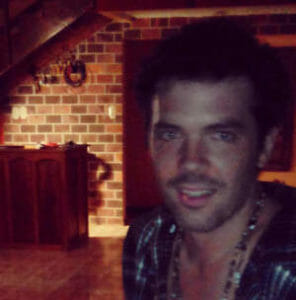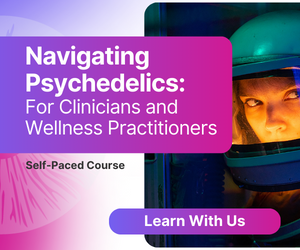By David Stetson
How can we use our mind, intellect, or heart to diffuse or address the origin of our problems that arise from the same place?
Iboga, Ayahuasca, Kambo, and 5-MeO-DMT have wandered from their origins and into our western culture during an ominous time for humanity – a time that is naturally calling for healing and metamorphosis. At Oka Center, it is our privilege to work with and integrate these medicines with their traditional uses into our lives and the lives of all who come here. Each guest brings benefits to all who are involved.
For us, the traditional use of entheogens is just as important (or more) as the recently developed ideology and protocols created by western doctors, scholars, and laypeople. Westerners have only recently started using these medicines significantly within the last 50 – 60 years. Traditional indigenous use is centuries old – perhaps older according to many – and comprises the vast majority of experience with these powerful medicines, not to mention their original discovery. Generations of use has naturally given rise to refined protocols, beautifully disarming spirituality, sublime music, and just the right amount of humor. We include standardized western medical guidelines to ensure safety which is imperative, but not intrusive. Particularly with ibogaine, it is of utmost importance to have medical prescreening, monitoring, and supervision before, during, and after the treatment.
We are grateful for the research and empirical data that has helped to assess the risks and benefits of Ibogaine and other entheogens, particularly from Ken Alper and the late Howard Lotsof. At the same time, the new trend in attempting to fit entheogens into the framework of the western medical schema is questionable.
Since there are enough anecdotal reports that suggest so many applications and benefits of these entheogens, it makes sense to try and “legitimize” them in order to make them available in our healthcare system. However, we need an honest review of our healthcare industry – especially within the mental health sector – to gauge how genuine a reference point our system is for validating or practicing any medicine or modality, especially for plant-based medicine which is off limits for patenting.
The enormous profit margins of the healthcare industry would be significantly reduced if lifelong prescription medications were no longer considered final solutions to common mental “disorders.” You need only do minimal research on the ruthless financial methods and ethics of the healthcare industry to come to some disturbing conclusions. In our experience, many people coming to Oka Center have reached a point at which their ongoing use of prescribed medications has provided no change or only damaged their situation further.
For those of you who want to get off hard drugs and have heard about the medicinal value of plant medicine like ibogaine, you might not see the relevance of its traditional use. Perhaps you have come to ibogaine because of its ability to alleviate opiate withdrawal or interrupt addiction, or your friend of a friend got off dope with ibogaine and it was miraculous.
While we do not force our ceremonially based protocol on anyone, almost everyone – including those coming to get off hard drugs – respond very positively to it. In the end, it is embraced and appreciated as an important element of the healing process.
Ruptured spirituality is common to everyone that comes to Oka Center – drug use or not: We are broken, tired, angry, bored, confused, stressed, frustrated, and oftentimes infinitely sad. Reflection, prayer, song, and dance may seem frivolous at first, but these things are much needed in our lives and are important in respecting the medicine and for laying the groundwork for your experience.
In many ways, our western culture has separated itself from nature. As individuals, we have lost an innate intelligence or awareness because of it. What might have been awe and wonder has been replaced with sarcasm and cynicism. Although our advancements in technology and industry have paved the way for practical efficiency and comfort, the downside is that it is getting increasingly easier to forget where we come from and where we are going. It is normal for us to feel alienated and unhappy in such a competitive, indifferent society built with concrete, computer chips, and suffocating ethical standards and expectations. Hard drug use is an appropriate response as any attempt to get through each day with a smile on your face.
Whether it is drugs, alcohol, gambling, depression, anxiety, exhaustion, or whatever else we have adopted or suffered from in the attempt to get by, somewhere along the line we realize discomfort, harm, and despair. Naturally, this is when we look for a way out of these negative cycles.
Beyond a certain point, to truly view and examine ourselves deeply and objectively in waking life can be almost impossible. The attempt at doing so most often ends up being more of the same self-deception. How can we use our mind, intellect, or heart to diffuse or address the origin of our problems that arise from the same place?
This is one of the main reasons why we advocate for the use of entheogens. The incessant internal rapport we have with ourselves never allows us to look beneath the masks we have created which project the flawless versions of ourselves we present to the world. Entheogens have a way of blasting our masquerade into pieces. With any luck, we are left with a beautiful nightmare that shines a light on our humanness: our fallibility, our fragility, our innate goodness, and our capacity for softness and empathy toward others because at the very root, we all share the same capacity for madness and beauty.
About the Author

David Stetson‘s passion has been Bwiti since his Iboga initiation in 2007. David is extensively well-traveled in Gabon, Africa where he is known as Okukwe. During his time in Gabon he learned Bwiti traditions, music, and ceremonial practices and is proficient on both the moungongo (musical bow) and ngombi (harp) instruments. David views Bwiti and Ibogaine as a lifeway that champions communion with others while also empowering the individual. His approach to working and healing with others starts with the awareness of alienation and isolation as common and appropriate responses to our western culture, and is based in non-judgement. Learn more about Oka Center here and check out David’s podcast interview with us here.


